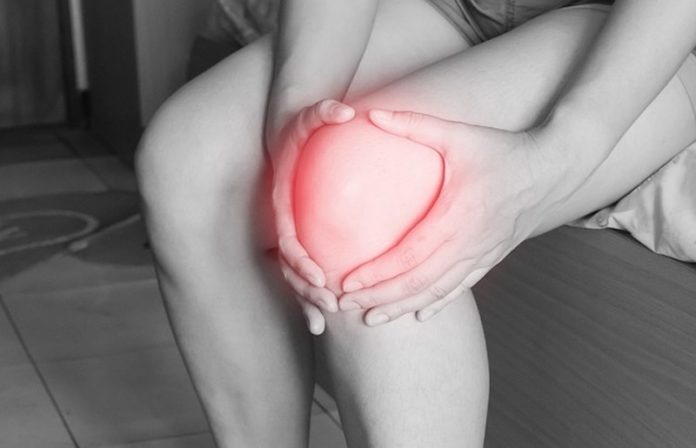
In a new study, researchers found a non-surgical treatment for arthritis in the knee is safe and effective in providing immediate and long-term pain relief.
They found genicular artery embolization (GAE) reduces inflammation in the knee to improve function and quality of life for people with moderate to severe knee pain.
Prior to treatment, patients’ knee pain had taken over their whole life. But after treatment, patients who initially could walk only three or four blocks were walking three miles.
The research was conducted by a team at UCLA.
Osteoarthritis is one of the most common causes of disability, limiting the daily activities of 40% of all U.S. adults.
Until recently, arthritis pain was regarded as a “wear-and-tear” disease, but as the cartilage breaks down it releases enzymes that can cause inflammation and pain, and limit functioning.
This treatment cuts down the abnormal blood flow to reduce inflammation. While it quickly improves patients’ pain, even more exciting is that the pain relief is durable—lasting for at least 12 months.
In the study, the team evaluated the safety and efficacy of GAE for the treatment of osteoarthritis in the knee.
The study included 40 patients who had failed to benefit from more conservative treatments, such as nonsteroidal anti-inflammatory drugs, joint injections and physical therapy.
Interventional radiologists navigated a catheter through a pinhole incision in the hip into the arteries in the arthritic knee.
They then injected tiny particles to control the blood supply to inflamed and painful areas of the knee. The outpatient procedure took approximately one to two hours, followed by a two-hour recovery period.
Each patient was evaluated for adverse events and pain scores at one week; one, three and six months; and one year after the treatment.
Patients saw benefits as soon as three days after the procedure. Average pain scores decreased from 8 out of 10 before GAE to 3 out of 10 within the first week.
Additionally, seven in 10 patients reported more than 50% reduction in pain scores at the one-year follow-up.
Minor temporary adverse events, such as transient skin discoloration and small bone infarct were reported in 10 patients but resolved without treatment within days.
The researchers plan to conduct a study with a larger patient population to determine which patients may benefit most from the treatment, as well as the impact it has on slowing the progression of arthritis.
One author of the study is Siddharth A. Padia, MD, FSIR, a professor of radiology.
The study was presented at the Society of Interventional Radiology Annual Scientific Meeting.
Copyright © 2021 Knowridge Science Report. All rights reserved.



